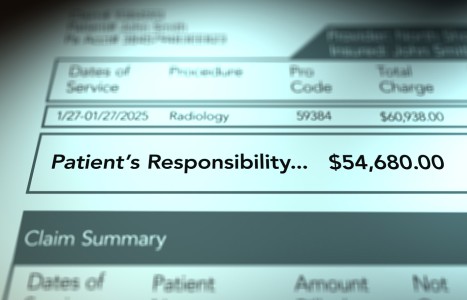Recent laws in New Jersey and California represent a disturbing trend that will negatively impact a practice’s ability to collect monies from patients, as well as expose them to significant penalties if the practice does not follow the mandatory guidelines to a T. Please be aware that a similar law may be coming to your state. The time to act is before the law is passed.
Insider's Insight
About the author: Dr. James Edwards, a 1977 graduate of Logan College of Chiropractic, is chairman of the Board of Governors of the American Chiropractic Association and president of the American Chiropractic Foundation. Dr. Edwards was appointed to the Kansas State Board of Healing Arts by two different governors, and recently completed his eighth year of service. He was named the Kansas Chiropractic Association's Doctor of the Year in 1991, and a Fellow of the International College of Chiropractors in 1995; In 2000, DC selected Dr. Edwards as its Doctor of the Year.
I am excited to have the opportunity to write a regular column for Dynamic Chiropractic that focuses on the national chiropractic scene from an insider's perspective. As chairman of the ACA, much of the news discussed in this column will come from my involvement in association activities; however, I intend to present the information in a nonpartisan manner.
I recently returned from Washington, D.C., where I presented testimony at the third meeting of the Veterans Affairs Chiropractic Advisory Committee. This first column will discuss the tentative agreements that have been reached thus far, and my impressions of the overall process.
Prior to this meeting, a working draft of how chiropractic might best be implemented into the VA system was submitted to the members by the committee chairman. The document was a compilation of the sentiments expressed by committee members during the first two meetings. This meeting concentrated on studying and revising the proposed document. Although the proposed draft is still subject to further amendment and revision, the following are areas in which I believe the committee has reached consensus:
- Qualifications - The first portion of the proposed document dealt with contracting qualifications for doctors of chiropractic into the VA system. The committee utilized the standard language for all the Title 38 professionals you would expect (U.S. citizen, English-speaking, professional license-holder, etc.). The only area of any controversy surrounded the "graduated from a CCE-accredited institution" language. Since some practicing DCs graduated before the inception of CCE, I look for protective "grandfa-thering" language to be included.
- Scope of practice - In the VA, doctors may be permitted to do any number of things according to their scope, but in actual practice, they are limited to perform only those things for which they have been privileged. Moreover, doctors' privileging may not exceed what their scope permits. Under these rules, the basic scope of chiropractic practice will include history-taking; performance of neuromusculo-skeletal and associated physical examinations; performance or ordering of X-rays; providing a diagnostic impression and treatment plan; referring to other healthcare providers (when appropriate); and performing chiropractic adjustments. The "extra" scope procedures (state law permitting) will include physiotherapy; ordering of laboratory tests; CT; MRI; ultrasound; bone scans; electrodiagnostics; orthotics; supportive bracing; taping; counseling and education on body mechanics; nutrition; lifestyle; exercise; hygiene; and ergonomics.
- Access to chiropractic care - The VA system, not unlike the Department of Defense, is primary care provider (PCP)-driven. However, the chiropractic members of the committee were successful in including some provisions and language that provide for limited, direct access care. While discussions will continue on the matter, I believe there was consensus that - absent any "red flags" or overt contrain-dications - requests for chiropractic would be honored without a PCP referral. Also, there is language being proposed that will help ensure patients are afforded early access to DCs for non-musculoskeletal conditions, rather than being subjected to 6-8 weeks of allopathic trials by their PCPs before obtaining a referral.
- Full team membership - The draft proposal also includes recommendations for additional privileging after a year; full medical staff voting privileges for DCs at the facilities; recommendations surrounding coordination of care (the interdisciplinary, "team-approach" model); and a recommendation that DCs be included as appointees on other VA advisory committees, as appropriate.
- DC staffing - Discussion has been initiated regarding how best to implement doctors of chiropractic into the system. The committee tentatively agreed to recommend a minimum of two DCs at each facility providing chiropractic services. In addition, after its recommendations are submitted to the VA secretary regarding access, scope and qualifications, another significant challenge will be to develop (and subsequently recommend) a training/teaching program on chiropractic for all VA staff, including medical doctors.
The VA Chiropractic Advisory Committee heard public testimony from the following individuals, representing the following organizations:
- Mr. David O'Bryon: the Association of Chiropractic Colleges;
- Wayne Wolfson, DC: the Federation of Chiropractic Licensing Boards;
- Matthew McCoy, DC: the World Chiropractic Alliance;
- Mr. David Chapman-Smith: the World Federation of Chiropractic;
- George McClelland, DC: the Foundation for Chiropractic Education and Research;
- Mr. Ronald Hendrickson: the International Chiropractors Association; and
- myself, representing the ACA.
My remarks covered two major points. First, I emphasized the importance of direct access so veterans would not be subjected to artificial barriers to chiropractic care. Second, I discussed the extreme importance of DCs being able to practice under the full scope of their state chiropractic licenses.
Although this meeting was much more contentious than the December meeting, as the political agendas of some of its members became transparent, I remain optimistic that the six chiropractic members of the committee will be able to successfully create a new 'federal model.' They continue to work well as a team, and are to be commended for their razor-sharp focus on ensuring chiropractic is implemented properly in the VA system.
James Edwards, DC
Austin, Texas
jamesedwards@jamesedwards.com


